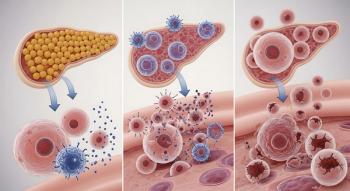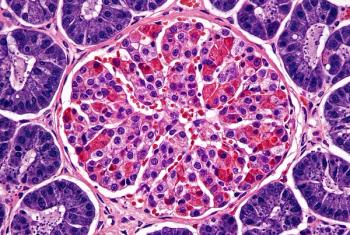
Another Monoclonal Antibody Delays Diabetes in Mouse Study
Johns Hopkins researchers have shown that a monoclonal antibody can reverse type 1 diabetes. It targets a different antigen than Tzield.
Researchers at Johns Hopkins Medicine have tested a potential monoclonal antibody drug that in studies with mice appears to prevent and reverse type I diabetes. Called mAB43, the monoclonal antibody targets insulin-making beta cells in the pancreas and is designed to shield those cells from attacks by the body’s immune system. The results were
Type 1 diabetes is an autoimmune disease in which lymphocytes target insulin-producing beta cells. About 2 million people in the United States have type 1 diabetes, including about 304,000 children and adolescents.
mAB43 targets Zinc transporter 8 (ZnT8), which is an autoantigen present on the surface of beta cells in patients with type 1 diabetes. Physicians test for this antigen to distinguish between type 1 and type 2 diabetes.
This is a different mechanism that is targeted by Tzield (teplizumab-mzwv), the only available monoclonal antibody to delay the onset of type 1 diabetes. Tzield is anti-CD3-directed antibody that was approved in November 2022. Developed by Provention Bio, which Sanofi acquired in April 2023, Tzield binds to the CD3 on T cells, deactivating the immune cells that attack the beta cells. Tzield has been shown to delay the onset of stage 3 type 1 diabetes by about two years.
Researchers at Johns Hopkins Medicine, led by Dax Fu, Ph.D., associate professor of physiology at the Johns Hopkins University School of Medicine, gave 64 non-obese mice with type 1 diabetes a weekly dose of mAb43 via intravenous injection when they were 10 weeks old. After 35 weeks, all mice were non-diabetic. One of the mice developed diabetes for a period of time, but it recovered at 35 weeks.
In five additional mice, the researchers started weekly mAb43 doses at 14 weeks old, and then continued dosages and monitoring for up to 75 weeks. One of the five in the group developed diabetes, but no adverse events were found, say the researchers.
All of the mice given mAb43 at 10 weeks were still alive at 75 weeks. The mice in the control group that did not receive the drug lived between 18 weeks and 40 weeks.
Researchers also used the biomarker Ki67, which is a protein found in cells that are dividing and found that beta cells were slowing reproducing. Researchers indicated that after treatment, the immune cells retreated from beta cells, which reduced the amount of inflammation in the area.
Although this is early research, investigators speculated that this new antibody has the potential to delay diabetes onset longer than Tzield and with a better safety profile for chronic use.
Sanofi released
The PROTECT clinical trial was a randomized, placebo-controlled study that assessed mean C-peptide levels at 78 weeks. C-peptide levels is a measure of how much insulin the body makes. Low levels are associated with a diagnosis of type 1 diabetes. In the PROTECT trial, more patients who received Tzield were able to maintain their C-peptide level compared with those on placebo.
Newsletter
Get the latest industry news, event updates, and more from Managed healthcare Executive.























